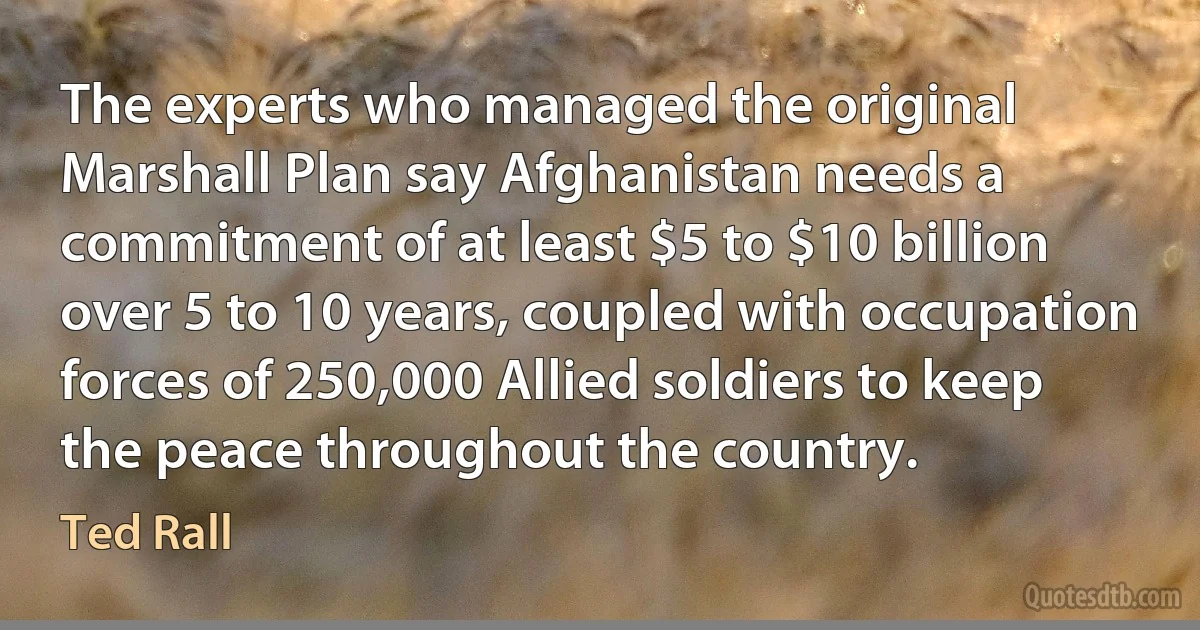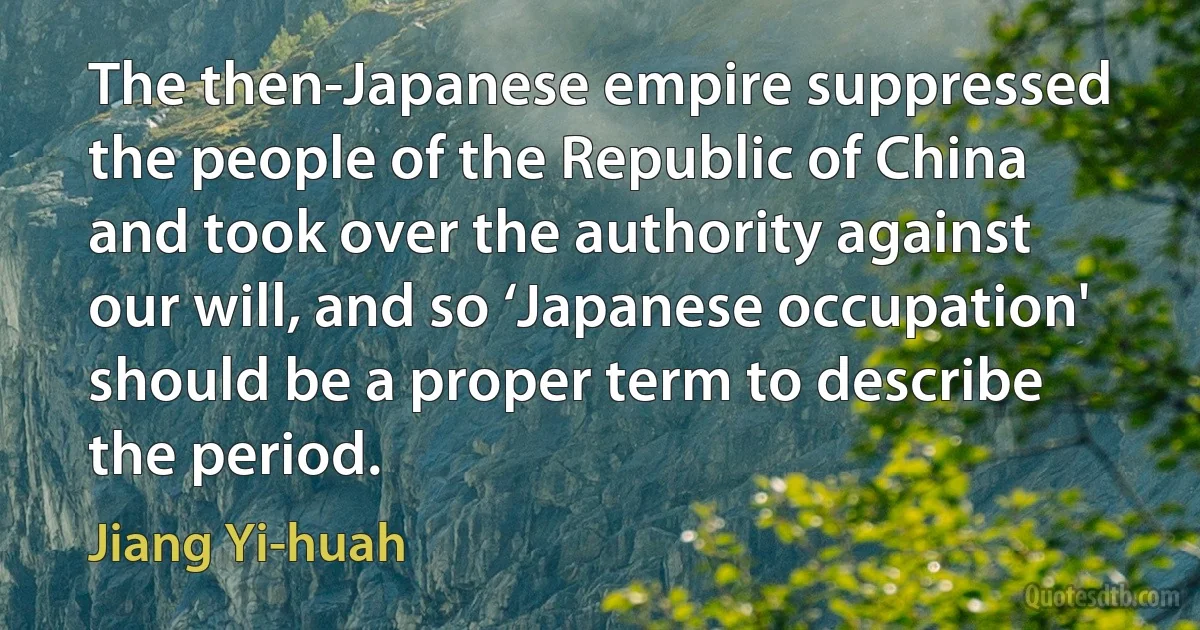Occupation Quotes - page 7
We all observe that the reality of sexual intercourse is far from perfect; yet this does not convince us that sex is a greatly overrated occupation. Every time a man glimpses a pretty girl pulling up her stocking, he catches a glimpse of what might be called the "primal sexual vision." It is unfortunate that there seems to be a certain disparity between this primal vision and most ordinary sexual experience. But it dances in front of us like a will-o'-the-wisp, luring us into tormented effort. It can lead novelists to write novels, poets to write poems, and musicians to write symphonies.

Colin Wilson
Sartre observed that he had never felt so free as during the German occupation when (as a member of the French resistance) he was in constant danger of being arrested and shot. Could there be a more conclusive proof that human beings are freer than they realize, and that their freedom is eroded by habit and laziness?

Colin Wilson
Women are never supposed to have any occupation of sufficient importance not to be interrupted, except "suckling their fools "; and women themselves have accepted this, have written books to support it, and have trained themselves so as to consider whatever they do as not of such value to the world or to others, but that they can throw it up at the first "claim of social life." They have accustomed themselves to consider intellectual occupation as a merely selfish amusement, which it is their " duty " to give up for every trifler more selfish than themselves.

Florence Nightingale
In a word, human life is more governed by fortune than by reason; is to be regarded more as a dull pastime than as a serious occupation; and is more influenced by particular humour, than by general principles. Shall we engage ourselves in it with passion and anxiety? It is not worthy of so much concern. Shall we be indifferent about what happens? We lose all the pleasure of the game by our phlegm and carelessness. While we are reasoning concerning life, life is gone; and death, though perhaps they receive him differently, yet treats alike the fool and the philosopher.

David Hume
All the Fathers with one heart execrated, and with one mouth protested against, contaminating the word of God with the subtleties of sophists, and involving it in the brawls of dialecticians. Do they keep within these limits when the sole occupation of their lives is to entwine and entangle the simplicity of Scripture with endless disputes, and worse than sophistical jargon? So much so, that were the Fathers to rise from their graves, and listen to the brawling art which bears the name of speculative theology, there is nothing they would suppose it less to be than a discussion of a religious nature.

John Calvin
It is a wive's occupation to wynowe all manner of cornes, to make malte, to washe and wrynge, to make heye, shere corne, and, in time of nede, to helpe her husbande to fyll the muckewayne or dounge carte, drive the ploughe, to loade heye, corne, and suche other. And to go or ride to the market, to sel butter, chese, mylke, egges, chekyns, capons, hennes, pygges, gese, and all manner of cornes.

Anthony Fitzherbert
When all three viz., Dharma, Artha, and Kama together, the former is better than the one which follows it, i. e., Dharma is better than Artha, and Artha is better than Kama. But Artha should be always practiced by the king, for the livelihood of men is to be obtained from it only. Again, Kama being the occupation of public women, they should prefer to the other two, and these are exceptions to the general rule.

Vātsyāyana
From the beginning while we were engaged in these issues, I said in interviews with those who came from abroad, even in Najaf or Paris or among my personal words, I have always said that clerics have an occupation which is more important than these executive jobs, and should Islam become victorious, clerics would dedicate themselves to their own occupation. But as we went on with the revolution, we found out that if we tell all clerics to go after their mosques, this country would fall into the throat of America and Soviet Union. We experienced and saw, those who took the lead but were not clerics, even though some of them were religious people, our revolutionary path was not according to their taste, therefore... we temporarily deviate from our original word until this country could be administered by those other than clerics, then clerics will go back to their preach and their own position and they will leave executive matters to others who work for Islam.

Ruhollah Khomeini
Thus they toil on in trouble and danger all the days of their life, with little opportunity for enjoying, being ever engaged in getting: their only idea of a holiday is to do what the occasion demands, and to them laborious occupation is less of a misfortune than the peace of a quiet life. To describe their character in a word, one might truly say that they were born into the world to take no rest themselves and to give none to others.

Thucydides
By the time I was twenty, I had lived through a Hungarian Fascist dictatorship, German military occupation, the Nazis' "Final Solution," the siege of Budapest by the Soviet Red Army, a period of chaotic democracy in the years immediately after the war, a variety of repressive Communist regimes, and a popular uprising that was put down at gunpoint... [where] many young people were killed; countless others were interned. Some two hundred thousand Hungarians escaped to the West. I was one of them.

Andy Grove
In its conception the literature prize belongs to days when a writer could still be thought of as, by virtue of his or her occupation, a sage, someone with no institutional affiliations who could offer an authoritative word on our times as well as on our moral life. (It has always struck me as strange, by the way, that Alfred Nobel did not institute a philosophy prize, or for that matter that he instituted a physics prize but not a mathematics prize, to say nothing of a music prize - music is, after all, more universal than literature, which is bound to a particular language.) The idea of writer as sage is pretty much dead today. I would certainly feel very uncomfortable in the role.

J. M. Coetzee
Zionist Israel's occupation of Arab Palestine has forced the Arab world to waste billions of precious dollars on armaments, making it impossible for these newly independent Arab nations to concentrate on strengthening the economies of their countries and elevate the living standard of their people.

Malcolm X



